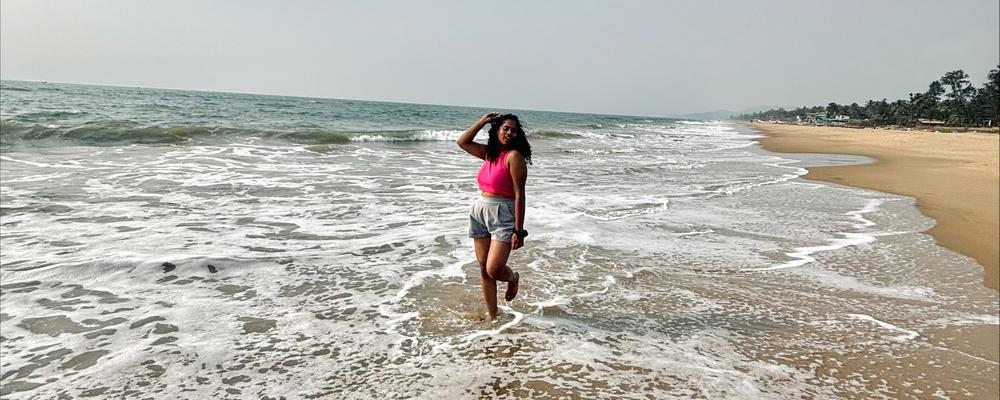
- Hem
- My internship in India
My internship in India
What’s it like to do an internship abroad? We asked Linet Pezhumkattil, student at the Master’s Programme in Global Health, some questions about her exchange experience. Why did she choose to go to India? What lessons did she learn and why should more people take the opportunity to go on an exchange?
Hello Linet Pezhumkattil! You did an internship in Mangalore, India as a part of your Master’s Programme in Global Health. Why did you choose to do an internship abroad?
– I wanted to gain firsthand experience with different healthcare systems and cultural norms beyond the Western context. Being in a completely new environment gave me insights that I could never have gained from books or research alone. It was a chance to see global health in action and understand its real-world complexities.
Why did you choose to go to India?
– India is the world’s most populous country and has an incredibly diverse healthcare system. I wanted to explore healthcare accessibility and deepening my connection to my Indian roots. Plus, escaping the cold Swedish winter was definitely a bonus!
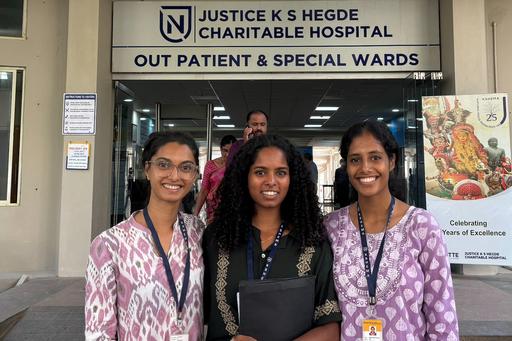
Tell us more about your internship.
– I did a 10-week internship at Nitte University in Mangalore, where I studied the structure of India’s healthcare system through lectures, discussions, and field visits to both public and private healthcare facilities. I also collaborated with local community health workers and did a research project on maternal health.
What has been the best/most challenging part of your exchange experience?
– The people! I met so many kind, welcoming, and helpful people. And the food was amazing! The biggest challenge was navigating the crowded city – it took some time to get used to.
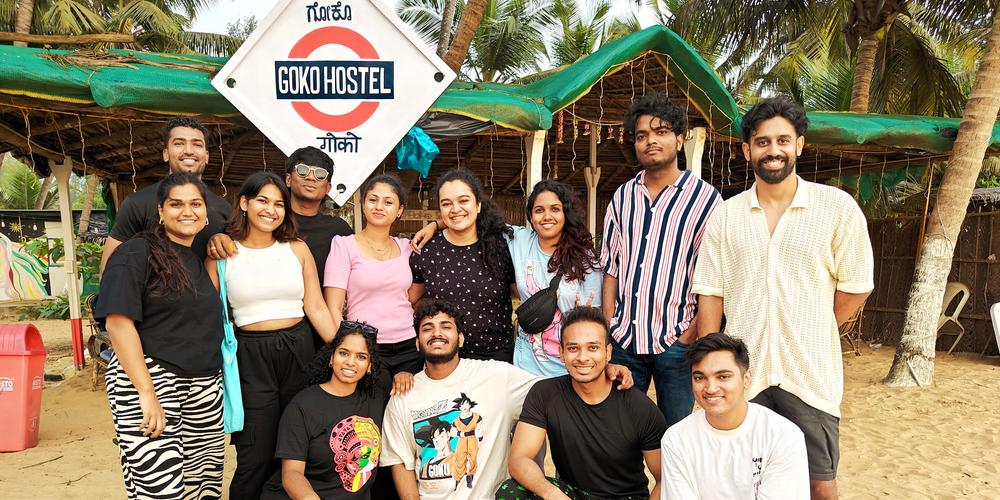
Tell me about your early days in India. What were the initial challenges, and how did you manage them?
– They were tough! The humid weather, the crowds, and figuring out how to use public transportation were challenging. But since I was mentally prepared for the differences, I was able to adapt quickly.
What lessons/insights did the exchange give you?
– I’ve become more confident in collecting and analyzing data, and I’ve gained a deeper understanding of the challenges people face in accessing healthcare. I really admire the ASHA workers (Accredited Social Health Activists), and the crucial role they play in community health.
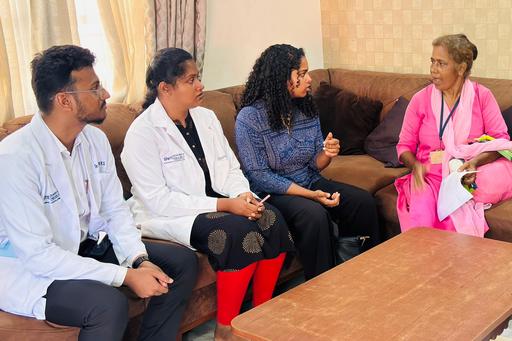
What was student life like?
– It was lively! There was always something to do, from visiting beaches and shopping malls to playing table tennis, volleyball, and badminton. The nightlife was more limited due to safety concerns, but there were still great places to hang out and socialize.
Tell us about life outside campus.
– I love to travel! I took the opportunity to explore different places and new cultures. For example, I visited the beaches in Goa, went surfing in Mulki and hiked in the beautiful tea plantation in Munnar, Kerala.
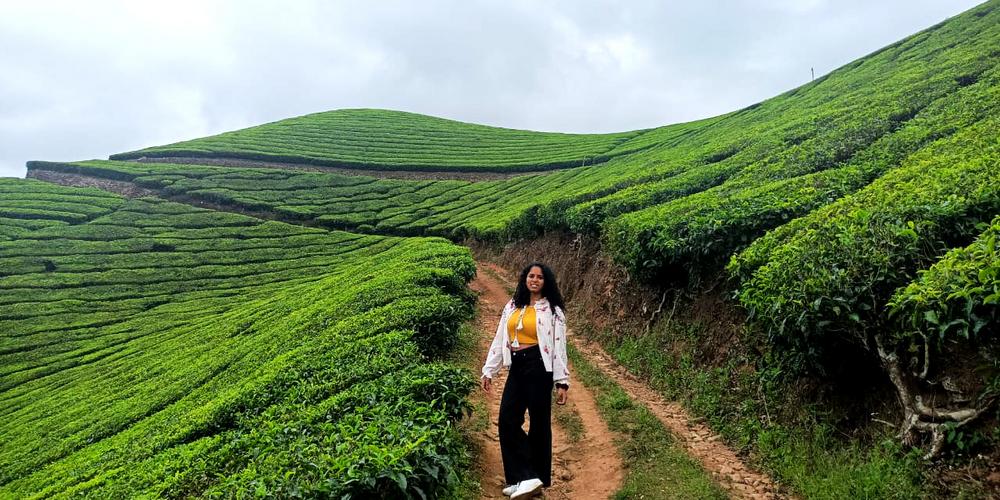
Did you experience any cultural differences?
– Many things were different. Like cows in the streets and the expectation to dress modestly. But I adapted quickly and even embraced the beautiful traditional clothing.
What did you know about India before and has that perception changed?
– Before coming to India, I believed that traveling alone as a woman was unsafe and nearly impossible. But I realized that as long as I stayed cautious and followed local advice, I could travel safely.
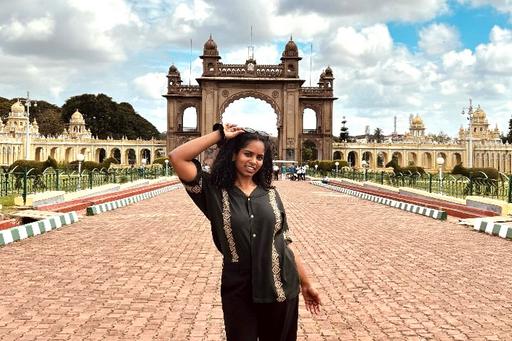
What do you want to do in the future?
– My dream is to work for the WHO or the European Commission in policymaking, health promotion, or research, especially in women’s health. I want to contribute to real change in global health.
Do you have any tips for others considering studying abroad?
– Go for it! Keep an open mind and be willing to adapt. Studying abroad is a unique opportunity to experience a new culture firsthand and gain a fresh perspective on different ways of life.
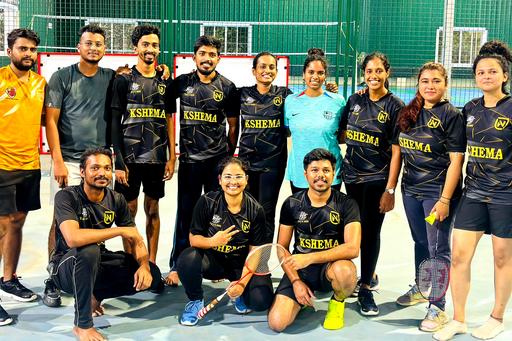
Top 5 Must sees around Mangalore, India
- Wayanad, Munnar, and Kochi (Kerala) – For the stunning landscapes, lush greenery, and serene backwaters.
- Jaganmohan Palace (Mysore) – A must-visit for history and art lovers, showcasing royal heritage.
- Bangalore – A vibrant city with great nightlife, shopping, and a mix of modern and traditional culture.
- Surfing in Mulki – Perfect for adventure seekers looking to ride the waves in a peaceful coastal town.
- Gokarna – A hidden gem for a relaxing beach vacation with fewer tourists and laid-back vibes.
Text: Nina Raun
FILM: Meet Linet
Name: Linet Pezhumkattil
Age: 24
Where are you from: Vienna, Austria
Studies in Sweden: Master’s Programme in Global Health
Internship at: Nitte University, Department of Public Health, Mangalore, India (southwest India)
Describe yourself in three words: courageous, thoughtful and explorative
Leisure interests: dancing, going to the gym, watching movies and travelling